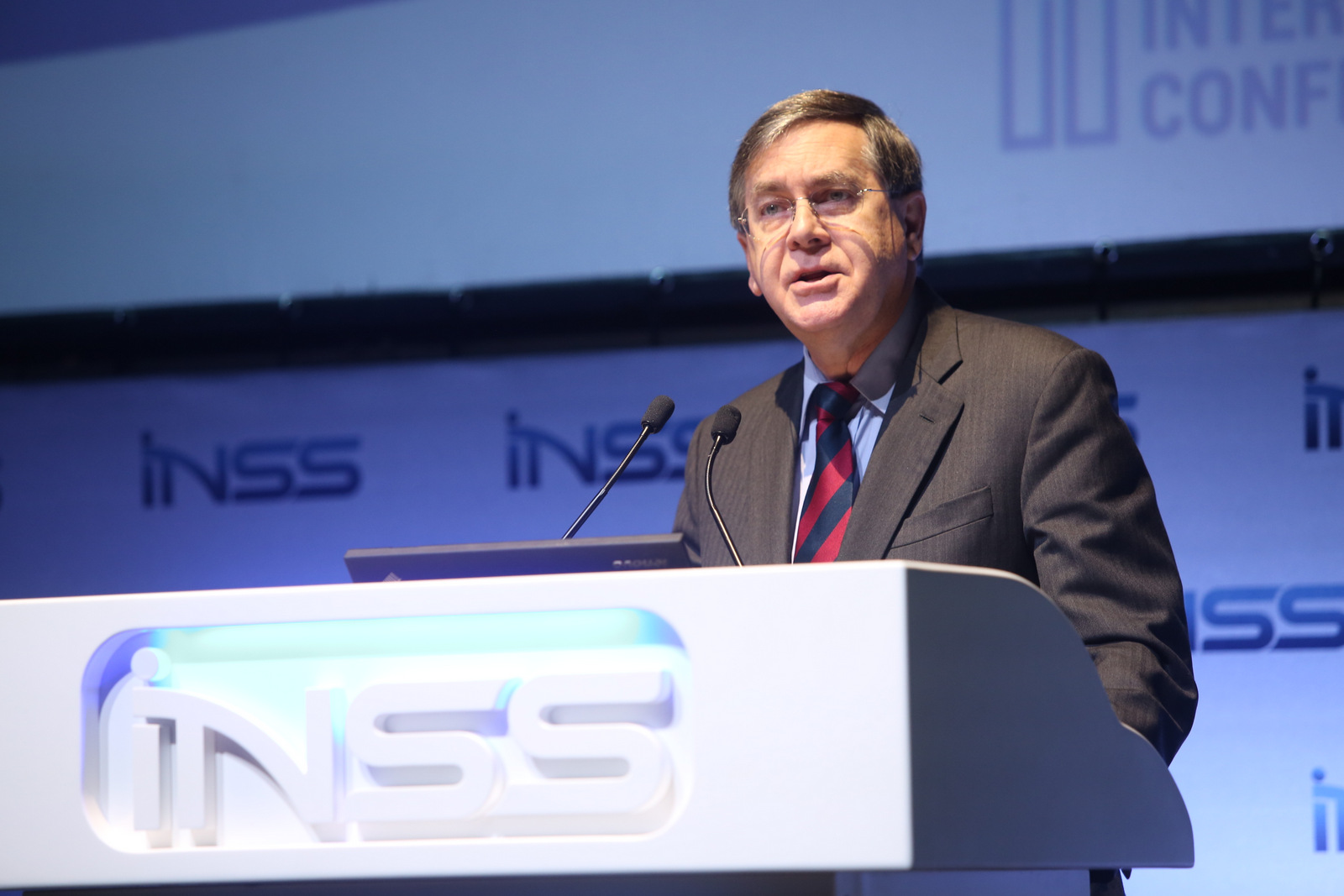
Ambassador David Satterfield, Acting Assistant Secretary, Bureau of Near Eastern Affairs,
U.S. Department of State
Ambassador Satterfield addressed the 11th Annual INSS International Conference, reviewing the three leading priorities of the United States in its policy toward the Middle East and North Africa. These included the fight against ISIS (Da’esh), efforts to counter Iran’s destabilizing influence across the region, and work with reformists in the region seeking to reverse decades of sclerotic political systems serving the interests of elites at the expense of populations.
It’s a pleasure to be back in Israel and to see so many friendly faces here. I will review the most significant strategic challenges in the region and discuss the way ahead. We seek to protect the US and its partners, and we seek to stabilize the region to prevent safe havens for terrorist groups.
Our highest priority is the defeat of ISIS. The anti-ISIS coalition, which the US leads, has been remarkably successful fighting by, with and through our allies on the ground. ISIS stands on the brink of military defeat, though fighting does continue. With the end of major combat ops against ISIS in Iraq and Syria, now comes the daunting task of reconstruction. We must ensure that the post-Da’esh environment does not produce new instability. To that end, the US will maintain a military presence in Syria focused on ensuring that Da’esh cannot re-emerge. In Syria, there needs to be a credible political process, overseen by the Geneva Process. As a result of recent discussions with all parties, and the leadership of the UN, the meeting in Sochi yesterday did not produce an outcome that will compete with the UN-led process. This was a significant outcome. With Sochi complete, we now have to focus on Geneva. Russia has an ongoing, critical role to play but we all do. A stable Syria requires new leadership in Damascus, with the departure of the current regime. But that transition can only take place as part of a Syrian-led political process. Russia wants to paint the current picture in Syria as a victory, but we don’t see it this way. True reconstruction will not come until a credible political process is underway. We have no pre-conditions for such a political process, but the outcome should be the departure of this regime. Recent events in Afrin have complicated the situation in Syria. We recognize Turkey’s security concerns, but the escalating violence in Afrin threatens our shared goal of defeating Da’esh and moving ahead with a credible political process. We hope Turkey will de-escalate the situation. In Libya, we are working with PM Sarraj’s government to defeat ISIS in a long-term sense and build political stability. We stand fully behind the UN roadmap.
We must also focus on the strategic challenge of Iran’s malign regional influence. We remain committed to ensuring Iran does not acquire a nuclear weapon. Our comprehensive Iran strategy focuses on countering not only Iran’s nuclear ambitions but its regional influence as well. Recent protests in Iran reflected economic grievances but also frustration with corruption of the regime. We support the people of Iran; our problems are with the regime. We are committed to stopping Iran from developing its missile program. Iran’s support for Houthis in Yemen, as in the proliferation of Iran-made missiles, is a source of enormous concern. We need to diminish Iran’s ability to use Yemen as a platform to threaten Saudi Arabia and the Bab el-Mandeb. We are pleased that Saudi Arabia recently opened Hudeida Port to humanitarian assistance. Iran’s support for the Assad regime and for Hezbollah is a profound threat for Israel and for the US. We will sustain our efforts to support legitimate state security institutions in Lebanon, such as the Lebanese Armed Forces, which could serve as a counterweight to Hezbollah. As for Iraq, it should not be any other nation’s proxy and we view a united Iraq as the strongest Iraq. The continued rift among the Gulf Cooperation Council has also opened a door for Iran to exert greater influence.
The final source of instability I’d like to mention concerns years of neglect from political systems that have served elites at the expense of populations. The demographic and economic challenge here is real, but the US can only do so much. We support reformists in the region and we encourage governments in places like Tunisia, Algeria, Egypt and Saudi Arabia. We cannot fix the Middle East alone but we stand ready to work with our partners to address the strategic challenges I’ve outlined.


